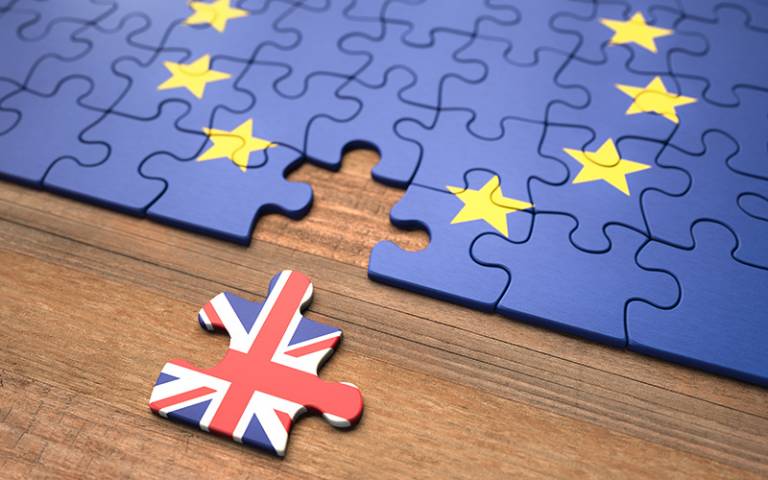UCL PVPR for Europe in mock negotiations on post-Brexit science deal
12 February 2020
UCL Pro-Vice-Provost (Europe) Uta Staiger was a key UK negotiator and panellist at the launch event for a report on simulated negotiations on a post-Brexit agreement on research and innovation

A pressing question for science academics in the post-Brexit environment is how the UK and EU will navigate an agreement on research and innovation. To explore this, an ambitious simulated negotiation on the subject was carried out, the outcomes of which were presented at a launch event at the Francis Crick institute on 28 January 2020.
UCL Pro-Vice-Provost for Europe and Executive Director of the UCL European Institute Uta Staiger was one of the UK negotiators and a panellist at the launch. The event was hosted by Beth Thompson, Head of Policy and Advocacy (UK & EU), and organised by Wellcome and economic think-tank Bruegel. A parallel launch of the report also took place in Brussels.
The report tells the story of the negotiation process and makes clear recommendations for the UK Government and EU institutions on how to best tackle the EU-UK future relationship on research and innovation. Key findings published in the report include: a post-Brexit science deal would be a ‘win-win’ for both UK and EU parties; full UK association to Horizon Europe is essential; negotiations must start immediately to ensure UK participation in Horizon Europe on day one; and while broad principles are easy to agree upon, translating them into specific commitments is more difficult.
Most importantly, the simulation demonstrated that a science deal that benefits both the UK and EU is possible, but requires collaboration and compromise to ensure it happens before Horizon Europe is due to start in January 2021.
 Close
Close

